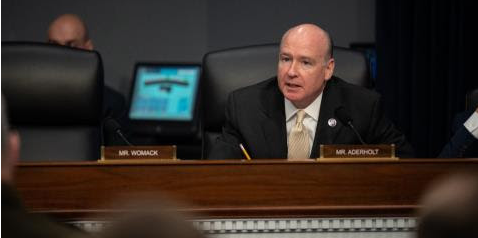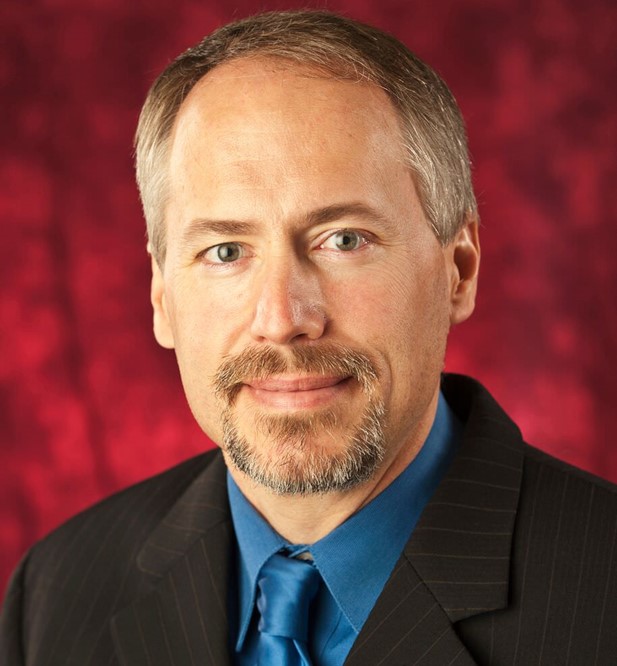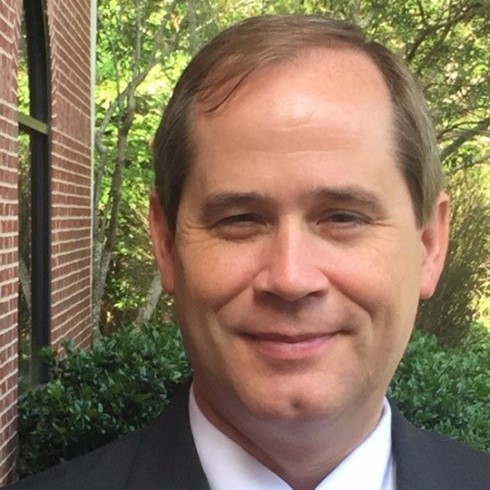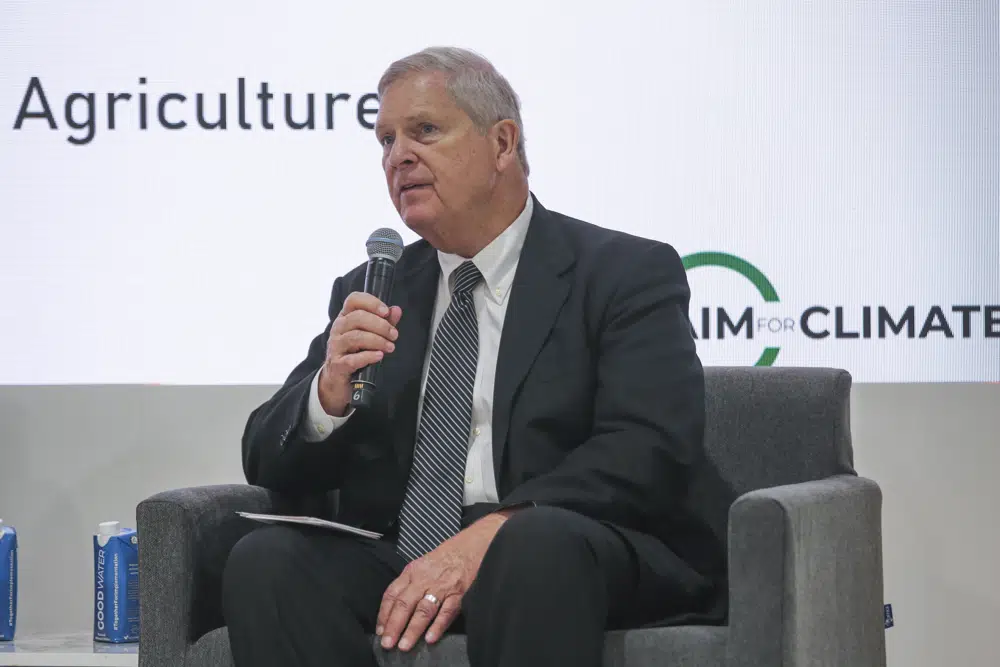Paul DeMarco: Tommy Tuberville stands up to Pentagon’s efforts to expand abortions in military

When Senator Tommy Tuberville was first elected, there were questions about how a former football coach and neophyte to politics would make it in Washington D.C. However, he has shown in his first two years that he is up for the job and willing to tackle difficult issues. He first took on the Biden Administration during the pandemic when there were efforts to deprive Alabama and other Southern states of treatments for COVID. He is now taking on Secretary of Defense Lloyd Austin with his efforts to increase the number of abortions paid for by the Pentagon. Austin has ordered the Department of Defense to review the expansion of abortions, which now number less than 20 but could end up being as high as 4,100 a year. Senator Tuberville has notified Austin, who was born in Alabama and went to Auburn University, that the move not only exceeds the Secretary’s authority but is illegal. If Austin moves forward with the plan, Tuberville has promised there will be consequences for the Pentagon. Specifically, he will block promotions made by Austin. This is not the first time Austin has put politics above the needs of the Nation’s defense. Recruiting numbers are down, and Austin’s left-wing idealogy is one of the reasons. His push for woke policies and vaccine mandates have weakened the military and the ability of the United States to defend against foreign threats. It has been quite a contrast for these two men with their ties to the state. And no doubt Tuberville is being praised for fighting back against Austin’s politicization of the military. It has been a tall order, but the Alabama Senator has earned the respect of citizens who demand the United States have the strongest armed services in the world. Austin’s efforts to prioritize abortions show he puts the liberal agenda of the current White House above the national defense. Senator Tuberville has made it clear he will challenge this Administration and represent the values of his constituents back home in Alabama. Paul DeMarco is a former member of the Alabama House of Representatives and can be found on Twitter @Paul_DeMarco.
Robert Aderholt fears Respect for Marriage Act lacks adequate protection of First Amendment rights

On Thursday, Congress passed the Respect for Marriage Act (H.R.8804) protecting same-sex marriage. Congressman Robert Aderholt expressed his concerns in a statement that the bill lacked adequate protections for religious liberties. “The First Amendment to our Constitution makes it clear that Congress shall make “no law respecting an establishment of religion or prohibiting the free exercise thereof,” Rep. Aderholt stated. “Even after the Senate changes, this bill does not give adequate protection to that First Amendment right. I fear that entities like the IRS will use this bill to target religious organizations. In Alabama, we have already seen how the Biden Administration targeted the Eagle Forum for simply exercising its First Amendment rights. This Administration will use this bill as another tool in its intimidation toolbox.” Congressman Aderholt voted No on the bill. Despite Aderholt’s concerns, the bill passed and was signed into law by President Joe Biden. The bill will codify the nationwide redefinition of marriage to include same-sex couples in federal statute for the first time. The National Conference of Catholic Bishops warned that the bill will also heighten the threats to religious liberty that have persisted after the Supreme Court’s controversial Obergefell v. Hodges decision in 2015. Bishop Robert E. Barron of Winona-Rochester is the chairman of the U.S. Conference of Catholic Bishops’ (USCCB) Committee on Laity, Marriage, Family Life and Youth. “We are gravely disappointed that the misnamed Respect for Marriage Act passed the Senate and continue to call for its rejection,” Bishop Barron said. “Pope Francis wrote in 2016 that ‘we can hardly stop advocating marriage simply to avoid countering contemporary sensibilities…. We would be depriving the world of values that we can and must offer.’ Indeed marriage, which is a lifelong and exclusive union, a complete and mutual gift of the husband and wife to each other for their good and for the procreation and education of children, is essential to the common good.” “However, decades of social and legal developments have torn sexuality, childbearing, and marriage from each other in the public consciousness,” Barron continued. “Much of society has lost sight of the purpose of marriage and now equates it with adults’ companionship. This bill fails to include clear, comprehensive, and affirmative conscience protections for religious organizations and individuals who uphold the sanctity of traditional marriage that are needed.” Cardinal Timothy Dolan, Archbishop of New York and chairman of the USCCB’s Committee for Religious Liberty, wrote about the religious freedom harms of the bill in a recent article. “This failure to afford space in the public square for those who offer an authentic witness about marriage dishonors the best of American traditions,” Bishop Dolan wrote. “Our country has always served as a demonstration to the world that citizens in profound disagreement can exist in a harmony sustained by a law and culture that cherishes tolerance and compromise.” Aderholt represents Alabama’s Fourth Congressional District. To connect with the author of this story, or to comment, email brandonmreporter@gmail.com.
Kay Ivey kicks off first of 67 County meetings to expand broadband across Alabama

Governor Kay Ivey was in Montgomery County on Monday to kick off the first of a series of statewide meetings through a program organized by the Alabama Department of Economic and Community Affairs (ADECA). The Alabama Community Broadband Technical Assistance Program (TAP) initiative will be offered in each of Alabama’s 67 counties, all of which are open to the public. “In today’s modern world, being connected is a necessity, and there’s far too many Alabamians who are unable to access high-speed internet. Increasing access to connectivity across the state has been and will continue to be a top priority for my Administration as we move into the next four years,” stated Gov. Ivey. “This is the first meeting of many that will be offered in all 67 counties across the state, and I encourage our local leaders and communities to participate. These ADECA-led programs host the critical steps we must take to get our state across the broadband finish line.” The TAP program is being administered by ADECA’s Alabama Digital Expansion Division, which has been tasked with awarding the funds for broadband expansion across the state of Alabama. “Under Governor Ivey’s leadership, Alabama has made strides in mapping and planning at the state level to increase broadband service in unserved areas of our state,” said ADECA Director Kenneth Boswell. “With the help of this funding from the U.S. Department of Commerce, ADECA will extend assistance with broadband mapping and planning to the county level. This will help counties and communities develop plans and data to help take advantage of the many future opportunities for grant funding to help internet service providers expand broadband access to unserved areas.” TAP will provide local governments and other public stakeholders with the technical assistance needed to deploy or expand broadband infrastructure and services to help communities prepare for broadband deployment and digital opportunities. The funding for this program will come from the U.S. Department of Commerce Economic Development Administration and the National Telecommunications and Information Administration (NTIA). An NTIA representative was also present at the Montgomery meeting to announce grant awards of $5 million from the Broadband, Equity, Access, and Deployment Program and $981,081 from the Digital Equity Act to support the program and other planning activities to increase access to broadband service. The federal government has flooded the state with billions of dollars to address rural broadband and other broadband access issues. Over the next few years, the state will make unprecedented funds available to expand broadband. These county meetings are designed to promote engagement from elected officials, internet service providers, government and community anchors, community-based organizations, and the general public in shaping the state’s plans for counties to maximize these opportunities. The Monday meeting at the Montgomery Commission was the first of these 67 meetings. Full-day engagements will follow on Tuesday in Lowndes County, then Greene County on Wednesday, Sumter County on Thursday, and Marengo County on Friday, December 16. These meetings are open to the public, and all interested in participating are encouraged to attend. You can sign up to receive email updates from ADECA to find out updates on this program, including when meetings will be scheduled in your home county and details like timing, location, and program itinerary. The Lowndes County meetings on December 13 will be at Jackson-Steele Elementary School, 570 Freedom Rd. in Hayneville. They will meet with elected officials from 9 to 10 am, ISPs, elected officials from 10:30-11:30 am, government and community anchors from 2-3 pm, organizations and associations from 3:30 – 4:30 pm, and the public from 5:30 to 6:30 pm. The Greene County meetings on December 14 will be at the R.H. Young Community Center, 720 Greensboro Street, in Eutaw. The elected officials meeting is from 9-10 am, the ISPs and elected officials meeting from 10:30-11:30 am, the Government and community anchors meeting is at 2-3 pm, the organizations and associations meeting 3:30 – 4:30 pm, and the public meeting is 5:00-6:30 pm. The Sumter County meetings on December 15 will be held at Land Hall on the University of Western Alabama campus at 154 Student Union Drive in Livingston. The meeting with elected officials will be from 9-10 am, the meeting with ISPs and elected officials will follow at 10:30-11:30 am, the meeting with government, community anchors, organizations, and associations will be at 1:00-2:30 pm. The Sumter County public meeting will be held on another date yet to be determined. The Marengo County meetings on December 16 will be held at Rooster Hall – 216 N Walnut Ave. in Demopolis. The meeting with elected officials will be from 9-10 am. The meeting will follow that for ISPs and elected officials from 10:30-11:30 am. The meeting with government, community anchors, organizations, and associations will be from 1:00-2:30 pm. The public meeting will be held on another date that has yet to be determined. To connect with the author of this story, or to comment, email brandonmreporter@gmail.com.
Kay Ivey bans the use of TikTok on all state computers

On Monday., Governor Kay Ivey sent a memo to all state agency heads to announce she has banned the use of TikTok on state devices and the state network. The governor’s office said that this was a cyber security action by the governor to protect the state and Alabamians’ sensitive data from Chinese infiltration activities. Ivey shared the memo on Twitter. Ivey wrote, “Protecting Alabamians’ rights is a must, and I surely don’t take a security threat from China lightly. That’s why I have banned the use of the TikTok app on our state devices and network.” “Protecting the state of Alabama and our citizens’ right to privacy is a must, and I surely don’t take a security threat from China lightly,” Ivey said in the announcement. “After we discussed this with our OIT secretary, I came to the no-brainer decision to ban the use of the TikTok app on our state devices and network. Look, I’m no TikTok user, but the evidence speaks for itself, and I want to make sure I’m doing everything we can as a state to stand against this growing security risk.” Ivey explained the decision saying that the computer devices and networks used by our state government house significant amounts of Alabamians’ sensitive data. They also ensure the proper functioning of numerous automated government functions. Gov. Ivey said that national security officials have warned of growing threats posed by the video-sharing app Tik Tok. Since TikTok is owned by a Chinese parent company, they are potentially subject to Chinese laws enabling its data to be shared with the Chinese Communist Party and the Chinese intelligence community. Ivey warned that Tik Tok harvests vast amounts of data from its users, much of which has no legitimate connection to the app’s supposed purpose of video sharing. For example, when users run the TikTok app for the first time, they give Tik Tok access to information such as their device brand and model, mobile carrier, browsing history, app and file names, and types, keystroke patterns and rhythms, wireless connections, and geolocation. She added that use of TikTok involving state IT infrastructure thus creates an unacceptable vulnerability to Chinese infiltration operations. FBI Director Chris Wray has been expressing his concerns about TikTok. Wray said the FBI is concerned that the Chinese could control the app’s recommendation algorithm, “which allows them to manipulate content, and if they want to, to use it for influence operations.” “Given these serious security concerns related to the use of TikTok, I have asked the Secretary of Information Technology to update his agency’s policies to prevent Tik Tok from accessing the state IT network and state IT devices even while providing exceptions for law enforcement and other essential governmental uses of the app,” stated Gov. Ivey. “Consistent with these policies, executive branch agencies should immediately take all necessary steps to prevent TikTok from accessing sensitive state data.” To connect with the author of this story, or to comment, email brandonmreporter@gmail.com.
Daniel Sutter: The FTX collapse

Cryptocurrency exchange FTX imploded in November. The company and its founder Sam Bankman-Fried (SBF), attained incredible notoriety in a short time and a $32 billion valuation before the bankruptcy. Does the collapse demonstrate problems with markets or government regulation of markets? Details continue to emerge. I will assume that FTX was basically a scam, based on a statement by the court-appointed supervisor, John Ray, who has supervised numerous bankruptcies, including Enron: “Never in my career have I seen such a complete failure of corporate controls and such a complete absence of trustworthy information.” How did the fraud occur? Reportedly two main channels. First, investors’ deposits with FTX were lent to Alameda Research, another SBF company, without customer knowledge or approval. Second, FTX also issued its own cryptocurrency, called FTT, which they mostly held but purchased a small quantity at a very high price. Based on these purchases, FTX claimed the FTT were worth billions and then borrowed against them. Is this just the most recent incarnation of the evils of greedy capitalism? Greed appears an inaccurate culprit here, given SBF’s advocacy of “Effective Altruism” and hundreds of millions of dollars of donations to charitable causes favored by the political left and Democratic campaigns and PACS. Perhaps then, FTX represents the evils of “woke” capitalism. This appears like another example of a person exploiting others. I do not consider this a “market failure” but rather a moral failure of a specific human being. Life would be better if con artists, swindlers, and grifters did not exist. Swindlers create two costs: the injustice and hardship of those cheated and the costs others must incur (including opportunities passed up) to avoid scams. What matters is whether swindlers harm society more with regulated or unregulated markets. Markets are voluntary; no one had to invest in SBF or his companies. Voluntariness lets us protect ourselves. If you have reservations about someone, invest elsewhere. You can avoid a company even if other investors do not share your concerns. We cannot always exhibit similar caution with government decisions. In a representative democracy, our representatives decide for us. Our preferred candidate may not win election. Our representative, even if quite cautious, may be on the losing side in the legislature. And unelected bureaucrats write most financial regulations. Furthermore, a law, regulation, or executive order does not automatically make the desired action happen (or prevent something undesirable). Regulators must act on allegations of misconduct. The SEC and Commodity Futures Trading Commission have both now initiated investigations into FTX; a timely investigation might have prevented the swindle. Bureaucrats ultimately are accountable to our elected representatives. Consequently, political factors always receive consideration. Recall SBF’s massive contributions to Democrats. Politicians will protect their benefactors when possible. This is not a slam against Democrats; I would expect Republicans to do the same. Government oversight produces a lulling effect. If people know the SEC and other agencies supposedly shut down fraudulent investments, we reasonably infer that non-shuttered companies are not frauds. We are not as vigilant when we think someone is watching out for us. Several House and Senate committees will hold hearings on FTX. Can new regulations prevent a repeat? Before FTX blew up, SBF advocated extensive government regulation of cryptocurrencies. His proposal reportedly would have entrenched FTX in the market. We reasonably fear being taken advantage of by smart people without consciences, persons who would swindle grandmothers out of their homes and not lose any sleep. Yet such individuals often end up writing laws and regulations. Their swindles become loopholes or special provisions buried deep within the rules and legal. Unregulated markets let the SBFs of the world hatch their schemes but let us not do business with him. Good luck when SBF writes the rules we must live by. No one deserves to be swindled. Wicked and wickedly smart individuals may catch us in elaborate scams. Yet their scams are more harmful when aided and abetted by government rules, including rules intended to keep miscreants in check. Daniel Sutter is the Charles G. Koch Professor of Economics with the Manuel H. Johnson Center for Political Economy at Troy University and host of Econversations on TrojanVision. The opinions expressed in this column are the author’s and do not necessarily reflect the views of Troy University.
Personnel Update: Robert Aderholt announces retirement of District Director Paul Housel

On Monday, Congressman Robert Aderholt announced the retirement of District Director Paul Housel after 25 years of Federal service. “It is bittersweet that we announce Paul Housel, our District Director, will be retiring at the end of this year,” Aderholt said. “Paul has gone above and beyond in serving the constituents of the 4th District for more than two decades. He has helped an untold number of people get their VA benefits, their Social Security benefits, their war medals, and so much more. It would be impossible to know how many people turned to Paul, and our office, as their last resort, and more times than not, Paul was able to help them through a difficult situation.” “Based out of our Jasper office,” Aderholt said. “Paul has been my representative on the ground when Congress was in session, and I could not be at an event, a meeting, or big announcement. He has many times played a role and helped lay the groundwork for projects that led to economic growth and more jobs for people in the 4th District.” “While all of us on my staff will miss Paul, we know he has earned his retirement,” Aderholt continued. “And while he is retiring from Federal service, he will soon be embarking on a new career to continue to be a servant leader in North Alabama. I wish him, his wife Tricia, and their daughter Lucy, all the best in this new chapter.” Congressman Aderholt will host a retirement reception for Paul so that his friends, and those he has helped, can wish him well in retirement: Aderholt was recently re-elected to his nineteenth term representing Alabama’s Fourth Congressional District. With Republicans taking control of the U.S. House of Representatives, Aderholt could potentially chair the powerful House Appropriations Committee in the next Congress. Aderholt is an attorney who formerly served as legal counsel for Gov. Fob James. He is a native of Haleyville. To connect with the author of this story, or to comment, email brandonmreporter@gmail.com.
USDA climate-smart agriculture projects now top $3 billion

The federal government on Monday announced another $325 million for agricultural projects that are intended to reduce greenhouse gas emissions. The latest list of 71 recipients for the U.S. Department of Agriculture’s Climate-Smart Commodities program primarily involves small and underserved farmers and ranchers. The payments follow $2.8 billion awarded in September to 70 projects, mostly larger-scale efforts backed by universities, businesses, and agricultural groups. USDA Secretary Tom Vilsack announced the latest round of funding at Tuskegee University, a historically Black college in Alabama, saying it’s vital that small operations benefit from the program. “It’s important that we send a message that it’s not about the size of your operation, that you don’t only benefit from the programs like this if you’re a large-scale producer,” Vilsack told The Associated Press. “If you’re a producer that historically has not been able to participate fully and completely in programs at USDA, that this program is going to be different.” The goal of the program is to use financial incentives to expand markets for producers who implement practices that reduce greenhouse gas emissions. More than 1,000 proposals have been submitted to the USDA to participate in the program. The underserved farmers and ranchers who would benefit from the latest funding are those who are beginners, from socially disadvantaged communities, veterans, and those with limited financial resources. The projects announced Monday, with funding ranging from $250,000 to $4.9 million, include: — $4.9 million to promote urban, mainly Black, farmers who grow and market crops in Alabama, Louisiana, Michigan, Mississippi, and South Carolina. — $4.9 million to help small and socially disadvantaged farmers in San Diego County, California, by improving soil health through applying compost, reducing tillage of the land, and growing trees and shrubs. — $3 million to help farmers in over 60 Texas counties adopt practices such as regenerative agriculture, which builds healthy soil that is more resistant to drought and heat. — $4.9 million to help farmers in 10 states and on tribal land grow barley on land using regenerative practices and to pay a premium for crops from those farms. Agriculture causes an estimated 11% of the nation’s climate-warming emissions, and President Joe Biden has set a goal of cutting greenhouse gas emissions by half in the U.S. by 2030. Timothy Searchinger, a senior research scholar at Princeton University’s Center for Policy Research on Energy and the Environment, said he welcomes the surge in federal spending to learn how to reduce agricultural emissions and implement practices. However, even as those ideas are tried out in dozens of spots around the country, it still will take years to study the results and replicate what works. “There are lots of promising ideas, but they are generally not in broad use,” Searchinger said. “There are lots of good ideas about what you can do, but they haven’t been proven out.” After the climate-smart money is awarded, Vilsack said there would be a concerted effort to monitor what programs succeeded and those that struggled so the efforts could be replicated elsewhere in the U.S. and other parts of the world. “We think this is an effort to really unify this effort on climate, not make it a divisive approach but one that unifies American agriculture and forest landowners and a concerted effort to improve income opportunities, to reduce greenhouse gas emissions, to store carbon, to create healthier soils and clean water,” Vilsack said. Republished with the permission of The Associated Press.
Gov. Kay Ivey seeks more time to carry out executions

Alabama Gov. Kay Ivey on Monday said she wants to give the state additional time to carry out an execution after a series of failed lethal injections. The Republican governor sent a letter to the Alabama Supreme Court asking justices to alter a longstanding rule that limits execution warrants to a single date. It is the first change requested by Ivey after announcing a “top-to-bottom” review of execution procedures. The review is ongoing, Ivey spokeswoman Gina Maiola said Monday. Alabama prison officials called off two recent scheduled lethal injections — for Kenneth Eugene Smith in November and Alan Miller in September — as midnight approached after last-minute legal appeals and difficulties by the execution team in connecting an IV line to each inmate. Under Ivey’s proposal, the state corrections commissioner could immediately designate a new execution date if a last-minute stay or some other delay prevents the state from carrying out an execution on the original date listed on the death warrant. Currently, if the state can’t get the procedure underway by midnight, officials must ask the Alabama Supreme Court to set a new execution date. The governor said other states do not have the strict one-day time frame. “In several recent executions, last-minute gamesmanship by death row inmates and their lawyers has consumed a lot of valuable time, preventing the department from carrying out its execution protocol between the conclusion of all legal challenges in the federal courts and the expiration at the death warrant issued by your court,” Ivey wrote. While Ivey placed the blame on the single-day time frame and last-minute appeals, lawyers for inmates and advocacy groups have said the repeated difficulties with establishing an IV line shows something is wrong with Alabama’s procedures. In a court filing opposing the setting of a new execution date for Smith, his lawyers wrote that his treatment “does not fall within society’s standards for a constitutional execution. The botched execution was terrifying and extremely painful for Mr. Smith.” Ivey last month requested a pause in executions after the state called off Smith’s lethal injection. It was the second time this year and the third time since 2018 that the state was unable to put an inmate to death. The state completed an execution in July, but only after a three-hour delay caused at least partly by trouble starting an IV line on Joe Nathan James Jr. Ivey said the state is also looking at moving up the current 6 p.m. start time for executions to give the Department of Corrections more time. Corrections Commissioner John Hamm will make a recommendation to her for a new time, she told justices. Republished with the permission of The Associated Press.


